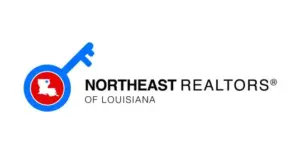Accurate, consistent data is the bedrock of any real estate transaction. It ensures that deals remain fair, efficient, and transparent from listing to closing. All Jersey MLS—still affectionately referred to as Central Jersey MLS by many long-time users—serves this role for New Jersey.
Decades of Data: From 1948 to Today
The MLS we know today had humble beginnings. In 1948, three independent brokers from Middlesex County met in a Woodbridge diner. They shared basic property details with a box of handwritten index cards: prices, lot sizes, and contact numbers scrawled in pen. These cards soon evolved into a mimeographed weekly booklet distributed to agents. Later, the system matured into a phone-based hotline, and by the late 1980s, listings went digital via a dial-up computer network—cutting-edge technology at the time. Photos took four minutes to load, so most users turned off image previews to save time, but the leap forward felt transformative.
With the internet came the next major leap. A web-based MLS was launched in 2002, enabling broader access across desktops. By 2015, security was strengthened with two-factor authentication, and not long after, a fully functional mobile app brought listing access to agents’ pockets. In 2023, the shareholders approved a new public name—All Jersey MLS—better reflecting its reach from Sussex County in the north to Cape May in the south. At the same time, IT staff transitioned decades of records to a redundant cloud system, safeguarding historical data against local server failures or outages.
Seventy-five years since those diner meetings, the MLS stores over 300,000 current and historical listings. This immense archive allows users to retrieve data on everything from co-op sales 1979 and townhouse conversions in the ’90s to a recently listed bungalow on the Raritan River. Appraisers rely on these deep comparables, urban planners analyze long-term supply trends to adjust zoning maps, and homeowners use the system to monitor equity growth over time without relying on speculation or incomplete third-party estimates.
A Map that Connects Every County
Today’s MLS offers complete coverage across all 21 New Jersey counties through a single, streamlined platform. With approximately 7,000 professionals logging in daily, listings receive rapid, statewide exposure—eliminating the blind spots and duplication issues of older regional systems.
This unified approach allows agents and clients to search across urban and rural areas without juggling multiple platforms. Whether it’s a condo in Jersey City or a farmhouse in Salem County, listings appear together with consistent data filters.
Even renters benefit from the system’s flexibility. A couple working in different cities can use the map’s midpoint feature to filter results by flood zones, pet policies, or school districts—often completing their move in just a few weeks.
Simple, Affordable Membership
Eligibility is broad: any active real estate license holder in New Jersey can join the MLS. While having a REALTOR® designation is encouraged, it’s not mandatory. The cost structure is intentionally accessible—about $55 per quarter or $220 annually. These fees have remained unchanged across multiple budget cycles, making the service financially manageable for new agents.
The onboarding process is designed for speed. A broker begins the registration, and agents follow by completing a digital form, setting a secure password, and receiving credentials—often within the same business day. Orientation is required within six months and provides foundational knowledge. Over a three-hour session, agents learn about mobile features, image requirements, and maintaining listing accuracy, including correcting typos without losing search visibility.
Quarterly billing also helps new agents manage their early-stage cash flow, especially as they await their first commission checks. The entire experience is designed to support early career success while emphasizing accuracy, accountability, and professionalism.
What Can Be Listed
All Jersey MLS supports a broad spectrum of property categories:
- Residential Sales include everything from single-family ranches and twins to attached rowhomes and modern infill developments. Taller colonials placed on formerly vacant lots in urban centers are also indexed—ensuring buyers see all options in a unified format.
- Residential Rentals: Options range from studios near Rutgers to spacious family homes in Somerset. Listings integrate with RentSpree, allowing landlords to quickly run credit, background, and eviction checks—streamlining the approval process and reducing fraud.
- Multi-Family & Investment: Duplexes, small apartment buildings, and mixed-use properties like barbershops with rental units above are supported. These listings include crucial investor data such as cap rates, projected income, and local tax assessments—all presented on a single, scrollable detail page.
- Land & Lots: Whether it’s a narrow infill parcel or a large 50-acre property near Route 206, listings record zoning classifications, soil reports, and wetland overlays, helping builders act quickly and confidently.
- Commercial Properties: Office condos, flex warehouses, and pharmaceutical lab space near the Turnpike all appear, and each is automatically syndicated to Crexi, opening the door to global investor traffic.
- Specialty Listings include active-adult communities, under-construction homes not yet at the drywall phase, and business-only transactions like laundromats or daycares. Essentially, if it’s a real estate asset, it likely has a home on the platform.
Market Stats – Spring 2025
- New Jersey average home value: $548,000 (up 6.5% YoY – (zillow.com)
- Middlesex County median list price: $535,000 (up 4% – (realtor.com)
- Statewide average time on the market: 20 days
Local trends vary significantly. In Edison, homes on the north side average close to $600,000, while the south sits near $520,000 due to lot size differences. Age-restricted condos in Monroe appreciated just 2% in the last year but still go under contract in under two weeks—thanks to cash-ready buyers from snowbird communities. Meanwhile, Salem County homes remain below $300,000 on average, though new industrial developments near the Delaware Memorial Bridge could bump those figures soon.
Inventory remains tight—just 1.7 months’ supply, well below the 3–6 months economists consider balanced. At the same time, builders file permits and materials, and sewer access delays deliveries. As mortgage rates hovered near 7% in late 2024, demand briefly dipped, but the arrival of spring reenergized the market, especially among first-time buyers. Many now turn to co-signers or settle for smaller yards to remain competitive. At the higher end, cash still dominates—60% of waterfront homes in Bay Head close without a mortgage.
Agents use InfoSparks and FastStats to guide clients in this fast-moving landscape. With a single click, they can compare sale-to-list ratios, measure the performance of three-bedroom homes in Metuchen versus nearby four-bedrooms, or track price changes following school boundary shifts. Clients grasp the visuals immediately, helping them decide before the next showing slot disappears.
Innovative Tools for a Smarter Workflow
The MLS dashboard is powered by Rapattoni, which is known for its user-friendly layout. Agents can search with a top-bar tool, browse maps in the center pane, and communicate with clients using a built-in chat widget. Buyers see updated listings in a secure portal, message their agents during a lunch break, and book showings for the weekend.
- Photo AI Auto-Fill: Detects materials like LVP flooring or quartz counters and auto-suggests tags. Agents review the input and publish listings in under 15 minutes.
- Transaction Desk: Pre-fills contracts and routes them securely for e-signatures.
- ShowingTime allows agents to block out nap times or school pickups. Buyers tap twice to secure a tour.
- Supra e-Key: Adjusts lockbox access in real-time for about $15 per month.
- CubiCasa: Transforms a ten-minute phone scan into a floor plan respected by appraisers.
- RESO Web API: Keeps brokerage websites updated with live data—preventing stale listings from confusing clients.
Bundling all these features under one login streamlines operations reduces monthly tech expenses, and ensures that sensitive data remains secure under a unified user agreement.
Education at Every Career Stage
New agents start with a required orientation covering rules, compliance, and app basics. But learning doesn’t stop there. Weekly webinars explore niche topics like flood zone overlays, split-testing listing photos, or building Canva flyers for digital marketing. Advanced certifications like GRI, ABR, and SRS are promoted through NJ REALTORS®.
The help desk welcomes technical or nuanced questions. Whether figuring out where to disclose a shared driveway or how to list a duplex with one short-term rental unit, staff offer screen-share links so users learn by doing. Veteran agents also join peer groups on Zoom to exchange strategies—like rapid CMA creation or targeted prospecting via Remine.
Even solo practitioners find team-level support without the hefty costs.
Reaching Beyond New Jersey
Positioned between two major ports and a key rail corridor, Central Jersey has always attracted global attention. ListHub Global pushes listings to 70+ international platforms, automatically converting currency, measurements, and terminology. A buyer browsing from Seoul can save a Plainsboro listing and contact the agent—no translation is needed.
Commercial exposure extends via Crexi, where European and Middle Eastern investors explore New Jersey cap rates that now rival hubs in Dubai or Rotterdam. One well-produced video tour often leads to a booked flight.
Thanks to RESO Platinum standards, developers from Toronto to Tel Aviv can build apps that pull All Jersey MLS data after meeting security checks. This live, structured feed powers new experiences—like 3D neighborhood tours or real-time mortgage chatbots.
A System Built on Trust and Standards
RESO Platinum certification ensures consistent field naming, enabling third-party tools to integrate without errors. Fair housing disclaimers are included on every listing, with violations penalized swiftly. Voting rights are based on license counts, giving brokers a proportional voice on NJ REALTORS® policy committees.
Transparency is non-negotiable. Listings marketed publicly must appear on the MLS by the next business day. Private listings are allowed, but only if there’s no public promotion. Nightly audits compare MLS entries to tax roll data, flagging inconsistencies in square footage or septic system capacity. Most issues are resolved quickly, preserving the MLS’s credibility.
Giving Back Locally
Community impact is central to the MLS mission. In November, agents across offices collect coats—last year, four box trucks went to shelters in Perth Amboy and Trenton. Spring marks the Brokers Build Day, where agents team up with Habitat for Humanity to raise roofs and frame homes, including power tools and pizza.
The data itself supports better governance. South Brunswick used InfoSparks stats on lot sizes and pricing when legalizing accessory dwelling units. Local schools pull data to project future enrollment before bond votes, ensuring communities don’t overbuild.
All Jersey MLS isn’t just a listing platform—it’s a statewide system built on 75 years of shared knowledge, community service, and evolving technology. Whether listing a starter ranch in Edison or acquiring a biotech lab in South Jersey, the tools, data, and people behind the MLS offer a robust, fair, and future-ready foundation.
Table of Contents






